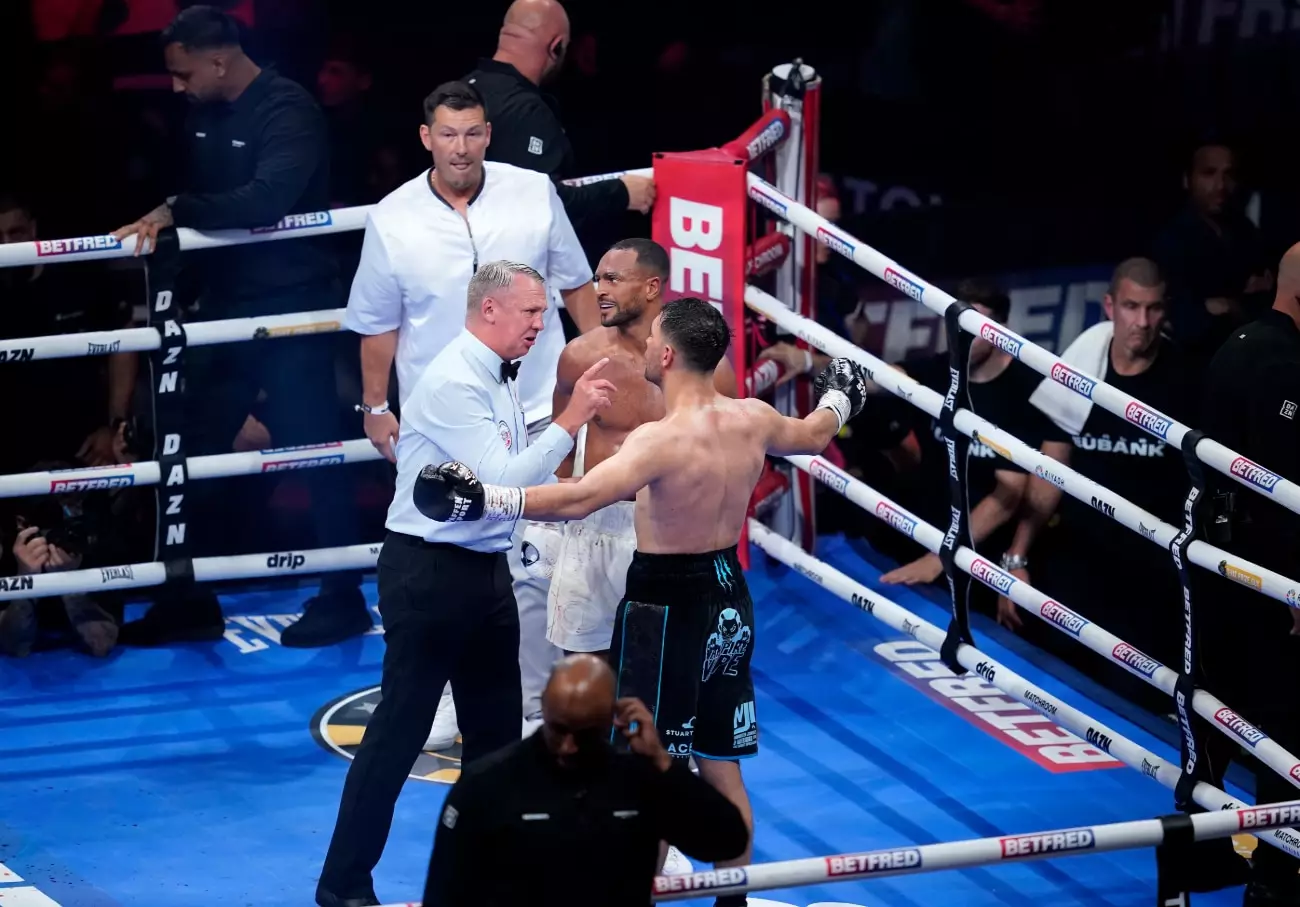The recent welterweight clash between Jack Catterall and Harlem Eubank has left fans, commentators, and industry insiders questioning the very fabric of modern boxing’s integrity. Instead of delivering the palpable excitement and tactical brilliance fans crave, the fight devolved into chaos, culminating prematurely due to a severe cut. The core issue lies not merely in the outcome but in the spectacle itself—an uninspiring, disjointed affair that highlights deeper problems plaguing the sport. As spectators, it feels like a missed opportunity to showcase the artistry and resilience that boxing can embody.
This fight exemplifies a larger trend where the spectacle is compromised, not by the fighters’ lack of skill but by management, refereeing, and promotional decisions. The messy head clashes, the lack of consistent engagement, and the abrupt ending cloud the event with dissatisfaction. What should have been a compelling story of grit and tactical mastery instead became a cautionary tale of regulatory hesitations and safety concerns overshadowing the sport’s core appeal. It’s crucial for boxing to confront these issues—failure to do so risks alienating fans and diminishing the sport’s integrity.
Questionable Decisions and the Impact on Fighter Legacies
The decision to stop the fight due to Catterall’s horrific cut appears justified from a safety perspective, but it also exposes the systemic flaws in fight regulation. The referee’s hesitation, the doctor’s assessment, and the subsequent ruling reveal a sport that often teeters on the edge of inconsistency when it comes to fighter health. While protecting athletes is paramount, the lack of clarity and transparency in such critical moments undermines public confidence.
Moreover, the outcome—Catterall’s technical decision victory—raises questions about fairness and competitiveness. Does a stoppage due to injury genuinely reflect a clear contender’s superiority, or does it merely serve as a temporary fix to an unsatisfying fight? For Eubank, losing his unblemished record under questionable circumstances might seem harsh, but it also underscores the unpredictable volatility of boxing. Fighters’ careers are often defined by ephemeral moments, yet the circumstances around this loss suggest that perhaps the sport’s regulatory framework needs a comprehensive overhaul to ensure consistency and fairness.
From Temporary Setback to Future Opportunities: A Critical Examination
Eddie Hearn’s optimistic proclamation of a “big fight” for Catterall hints at a broader strategic shift within promotional circles. Yet, one must ask: are these opportunities genuinely earned, or are they driven by marketability and sensationalism? The current welterweight landscape is electrifying, with names like Ryan Garcia, Rolly Romero, and Devin Haney harnessing social media momentum and high-profile bouts to elevate their status. For Catterall, stepping into this arena is a double-edged sword: he needs to capitalize on his win but must also navigate a division rife with in-house politics and promotional maneuvering.
The notion that Catterall will now be aimed at a world title or a high-profile fight is promising but also perilous. The division’s competitiveness demands more than just a new accolade; it requires a strategic, disciplined approach and a recognition that victory must be built on genuine skill, not circumstances. It’s critical for both fighters and promoters to prioritize the sport’s credibility over fleeting gains.
As for Eubank, this loss highlights an urgent need for introspection and refinement. The narrative of redemption, which many fighters have etched into history, depends on resilience and adaptability. For Eubank, the path forward must involve reassessment—rethinking tactics, conditioning, and mental toughness rather than rushing back into a battlefield already fraught with critical scrutiny.
The Broader Crisis of Trust in Boxing’s Leadership
What lies beneath the surface of this fight is a deeper concern: the erosion of trust in boxing’s regulatory and promotional bodies. The fight’s messy execution and the injury-driven ending expose systemic issues—ambiguous refereeing standards, inconsistent medical protocols, and promotional interests that sometimes prioritize spectacle over safety. Fans are increasingly skeptical, and rightly so, about the integrity of decisions made in the ring.
For boxing to regain its stature as a sport of skill, resilience, and integrity, significant reforms are necessary. Transparent decision-making, unified regulations across jurisdictions, and a focus on safeguarding fighters’ long-term health should be non-negotiable. Without these, boxing risks diminishing its audience and losing relevance to younger generations who crave authenticity and fairness.
The Catterall vs. Eubank fight is more than just a disappointing event; it is a mirror reflecting many of boxing’s most pressing issues. The sport stands at a crossroads—either to confront its systemic flaws head-on or continue to drift into a realm of superficial spectacle. The future of boxing hinges on integrity, fairness, and genuine competition—values that must be restored if the sport hopes to thrive in the years ahead.


Leave a Reply